WFP disability inclusion helpdesk: 120 solved requests and counting
Blog, News-iag | January 26, 2025
Since September 2021, CBM Global’s Inclusion Advisory Group (IAG) has been delivering technical advice on disability inclusion through a helpdesk service to the World Food Programme (WFP).
In this time the helpdesk has solved more than 120 requests submitted by WFP programme-focused employees. We spoke to helpdesk users in WFP country offices, regional bureaux and headquarters, as well as helpdesk advisors and partners, to find out more about the impact of the helpdesk on WFP’s work.
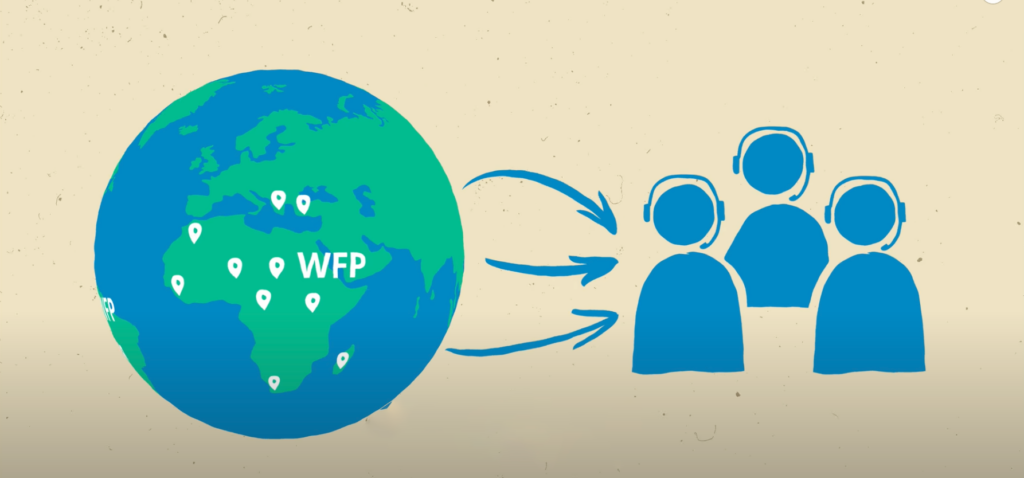
Why a helpdesk?
WFP has a presence in over 120 countries and territories, bringing life-saving assistance in emergencies, and supporting sustainable and resilient livelihoods to achieve a world with no hunger.
Establishing the Disability Inclusion Helpdesk is one of a number of bold steps taken by WFP to improve disability inclusion across all its operations in line with the UN Disability Inclusion Strategy.
Liz Morgan, an IAG advisor who works on the helpdesk, summarised its value:
“We believe that a helpdesk operated by a team of disability inclusion advisors using consistent and clear workflows, taking a team approach and applying quality assurance processes is an efficient mechanism through which WFP employees can access the support that they need.”
Providing additional expertise
The helpdesk provides additional technical expertise to help WFP programme teams meet their disability inclusion goals.
Murali Padmanabhan, Regional Disability Inclusion Advisor for the WFP Bangkok Regional Bureau said that the helpdesk has assisted his colleagues and teams across the region to achieve their objectives on disability inclusion.
“People are not postponing things for [the] next period of time citing the reason or the excuse of capacity… You have the helpdesk, we can ask its support so that that capacity can be well maintained and there is no delay.”
Kavita Brahmbhatt, Senior Disability Inclusion Advisor at WFP Headquarters said that the organisation has a huge scope of programmes and that the helpdesk fills knowledge gaps on how disability inclusion can be applied.
“We know that technical experience and technical advice is extremely important. So whilst we’re getting up to scratch and building skills, at headquarters, in regions and in the field, the IAG helpdesk has really helped us to fill these crucial gaps in knowledge.”
Providing sector-specific and contextualised advice
IAG’s large network of advisors have a wide range of expertise on the foundations of inclusion, such as accessibility, reasonable accommodation, data, and how to work with organisations of persons with disabilities and ensure meaningful participation. The team brings their experience working in specific sectors such as cash-based transfers, social protection, livelihoods, and school-based programmes, to their work on the helpdesk.
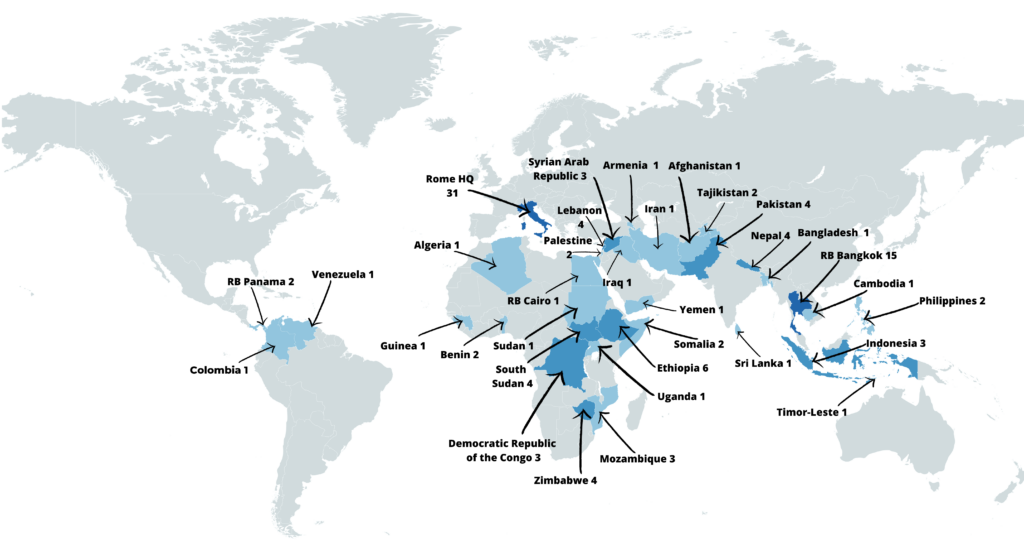
Many helpdesk advisors are based in the countries where WFP operates, so they can provide context, specific advice, and facilitate in-person training.
Tom Palmer, an IAG advisor who has worked on the helpdesk since it launched in 2021, explained how this works in practice:
“We’re able to work as a team of advisors to draw on a wide range of expertise on specific sectors as well as context-specific knowledge to provide advice that is really tailored and responsive to the realities that a WFP country office might be facing.”
Claire O’Reilly, Research Fellow at Trinity College Dublin, another disability inclusion partner of WFP, explained the benefits of working with IAG advisors:
“It is the opportunity to speak with an expert who knows disability inclusion who has some of that field experience and you can really take best practice and evidence and contextualise that for the types of activities and the types of settings that WFP works in.”
On demand and timely advice
The helpdesk provides advice on-demand and always responds within 48 hours of receiving a request.
Brownyn Healy-Aarons from WFP’s HQ Cash-based Transfers Division likes the responsiveness of the helpdesk.
“The good thing about the help desk is you can just send them a message like a little SOS, basically asking for support on a general or specific topic. They organise the best people at their end to respond to whatever challenge you’ve thrown them.”
Aline Carruet, former WFP Disability Inclusion Officer at WFP said that because the helpdesk responds quickly, it enables institutional change.
“It is unique as it has the capacity to provide support at very short notice in response to big number of requests. So this allows us as DI team at HQ as well as the regional DI advisors to set more ambitious commitments and dedicate more of our time to systems change and capacity building.”
Tailored tools, training materials and frameworks
The helpdesk often produces bespoke guidance notes, tools, and training materials designed to meet each user’s specific requirements.
Karen Alexander, an IAG Senior Advisor working on the helpdesk, explains how helpdesk advice is tailored to each request:
“You can put a request in through the help desk and the advice that you get will be particularly tailored to you. It’s not just ‘watch this training or here is a guidance note’, but it actually helps you to use that advice in your context.”
Monica Matarazzo, who used the helpdesk when she was a Gender & Protection Officer in WFP’s Syria Country Office, received valuable technical support:
“I’m not a disability and inclusion expert…although I have a background in protecting human rights, so I was looking for someone with in-depth experience who could support me and the operations in developing training packages and also in delivering those trainings.”
Caroline Jagoe, Associate Professor at Trinity College Dublin, said that the interactive and the tailored nature of the help desk is unique.
“These are not merely guidance documents, but tailored advice based on the context and the queries raised in practice.”
Engaging with Organisations of Persons with Disabilities
The helpdesk enables staff from WFP County Offices to engage and work collaboratively with organisations of persons with disabilities (OPDs). This a critical element of disability inclusion and OPDs are an essential partner for humanitarian and development actors.
Rachana Rasaily, Programme Policy Officer from the WFP Nepal Country Office highlighted this feature of the helpdesk support:
“We organised a consultation workshop with organisations of persons with disabilities and presented our draft country strategy plan, where the OPDs had an opportunity to give us some sense of where we can go and how we can integrate disability inclusion.”
Patricia Norimarna, Strategy & Policy Officer from the WFP Country Office in Indonesia, said that the helpdesk has enabled OPD engagement:
“Because of the opportunity to work closer with OPDs and having them engaged in all these discussions around policies and development, humanitarian issues, you will see that they have very strong knowledge. They have the capacity, if provided opportunity, and they can actually see things that we probably don’t see because they are the ones who are facing barriers and challenges.”
A positive ripple effect and transformative change
The helpdesk can lead to long-lasting and transformative change including increasing awareness of disability, influencing country strategy, improving partnerships with OPDs, as well as coaching and building capacity of existing staff.
Angela Kohama, Disability Inclusion Officer at WFP HQ highlighted this aspect of the helpdesk:
“Creating tools like country office entry point plans and other technical tools have really helped our different teams across the globe develop their strategy on disability inclusion.”
Suzanne Edelkamp, Programme Policy Officer from the WFP Country Office in Philippines said there is increased awareness amongst colleagues on disability inclusion:
“It is important for WFP to push this agenda forward and to really make sure that all of our programmes reach everyone, including persons with disabilities.”
Tigest Sendaba, Gender-based Violence Advisor from WFP headquarters said working with the helpdesk has increased her confidence:
“I have increased confidence that the discussion around disability is actually evidence-based, that it’s informed by technicians, by people who have been working on the subject matter for much longer. So, I have much more confidence about the quality and the depth of discussions around disability that I was hoping to be able to provide.”
Progress increases demand for further support
IAG looks forward to continuing to support WFP’s progress towards disability inclusion. As awareness grows among programme teams, and more country offices set ambitious objectives, the demand for technical support and capacity development on disability inclusion will increase. The helpdesk will be ready to provide ad-hoc support as well as strategic input to learning reviews, capacity assessments, training and coaching, OPD engagement, and programme design, as well as data planning and support.
https://cbm-global.org/news-iag/wfp-disability-inclusion-helpdesk-120-solved-requests-and-counting
Other IAG Projects
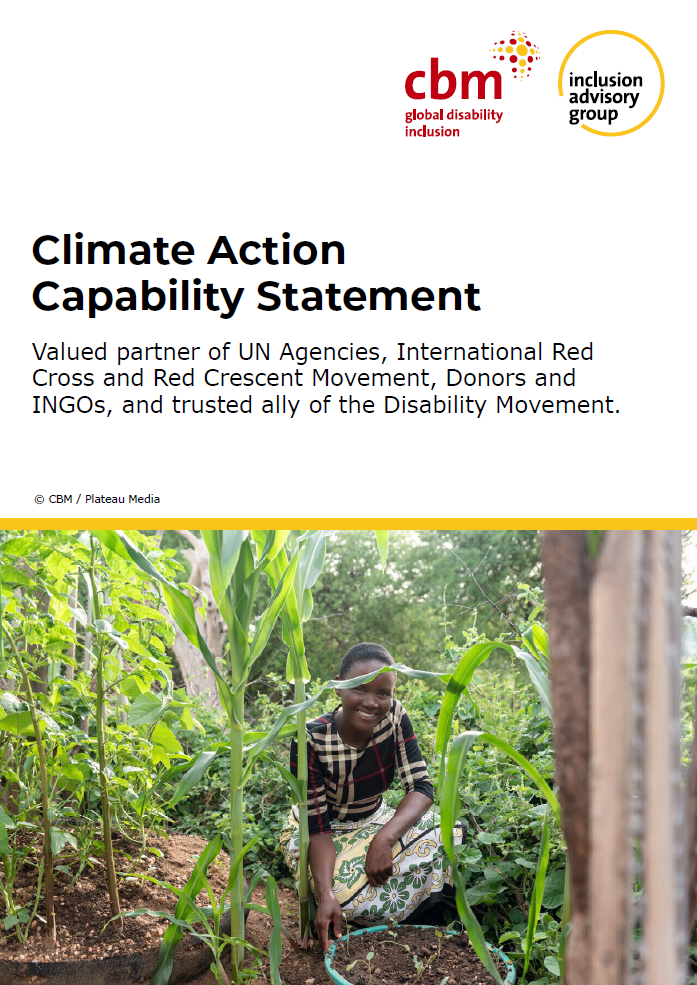
Towards systems change: collaboration for disability-inclusive climate action
In December, to mark the International Day of Persons with...
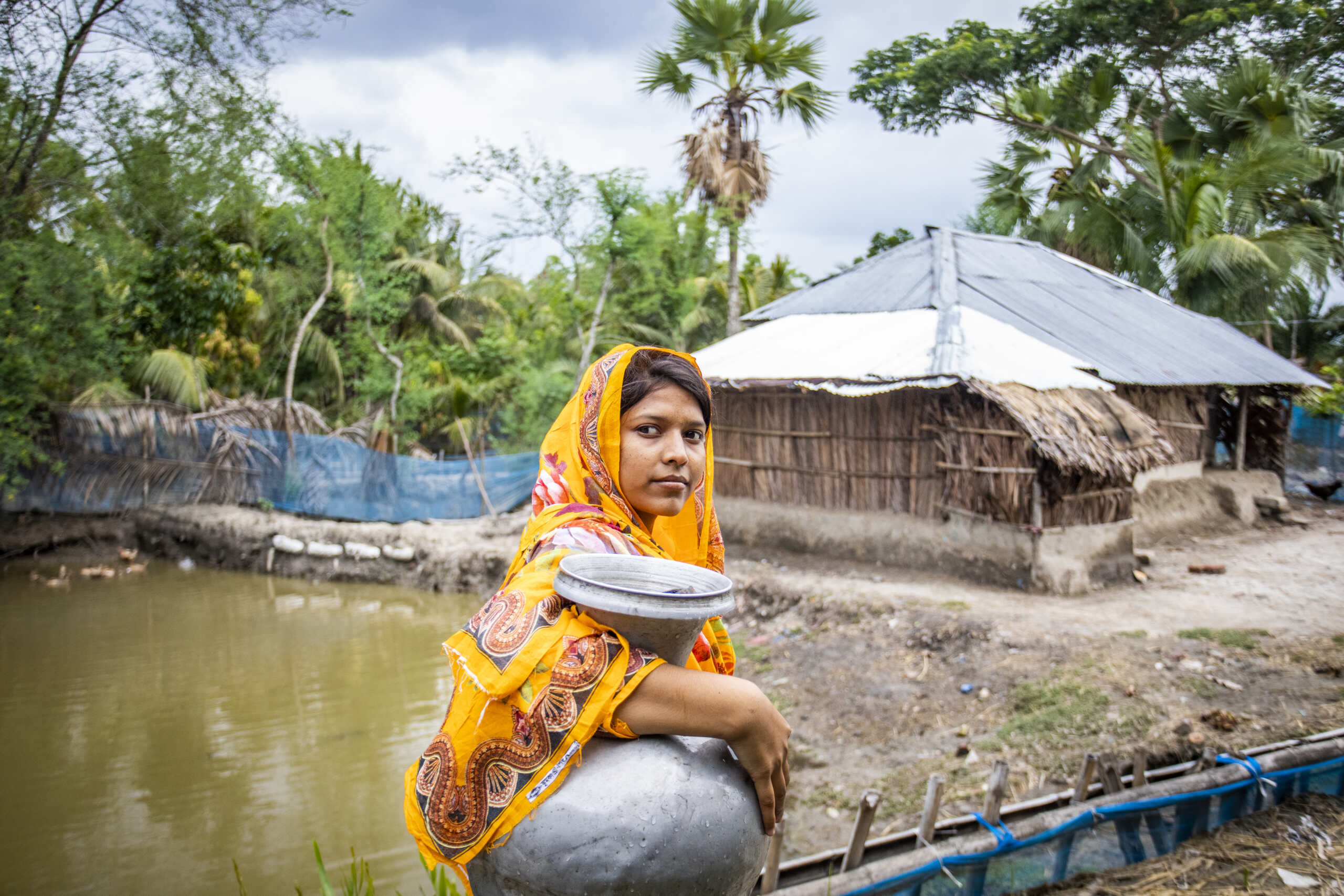
Advancing disability inclusive climate action: A resource guide for global practitioners
Advancing disability inclusive climate action: A resource guide for...
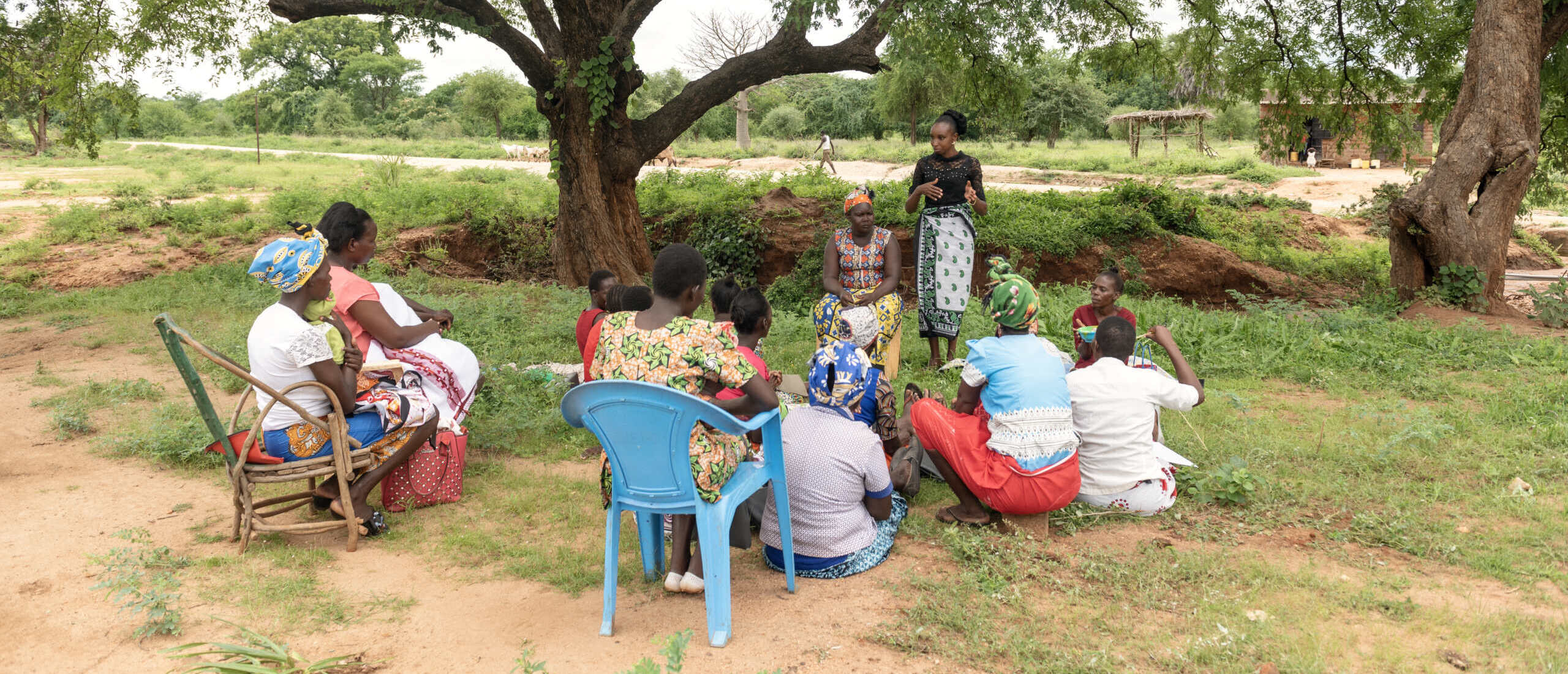
What our partners told us and how it shapes our future
One of our strategic priorities as a Federation is to shift power in partnerships....
